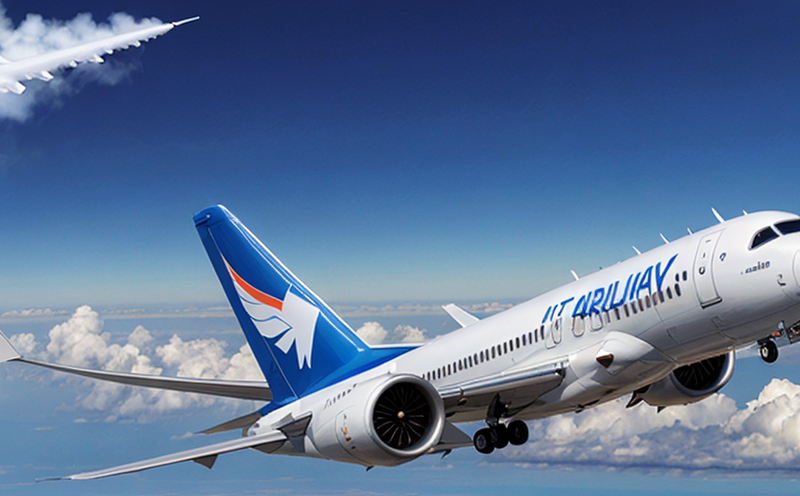RTCA DO-178C Level A Software Validation Testing
The RTCA DO-178C standard is a critical framework for ensuring the reliability and safety of avionics software in aerospace systems. This document defines stringent processes that must be followed to validate the software used in aircraft, particularly targeting Level A as the highest level of conformance. The primary goal of this service is to verify that all levels of software requirements are thoroughly validated and meet the stringent requirements set by DO-178C.
Our laboratory adheres meticulously to international standards such as RTCA/DO-178C, ensuring compliance with rigorous testing protocols. Our team of experts ensures that every aspect of the software undergoes validation, from initial design through final certification, following all defined guidelines. This process includes thorough code inspections, static and dynamic analysis, unit tests, integration tests, system tests, and formal methods like proof-based verification.
The significance of RTCA DO-178C Level A lies in its comprehensive approach to software validation. It mandates the use of multiple techniques that collectively ensure high-quality software development practices are followed throughout the entire lifecycle of the software. The standard is particularly important because it addresses critical safety aspects of aerospace systems, where failure can lead to severe consequences.
Our testing environment mimics real-world conditions as closely as possible, using state-of-the-art equipment and simulation tools. This allows us to provide accurate results that reflect actual in-flight scenarios. By doing so, we ensure that the software we validate is not only compliant with DO-178C but also robust enough for reliable performance under various operational conditions.
The process begins with a detailed understanding of the software requirements and design documentation provided by our clients. This includes identifying all potential failure modes and their associated risks. Following this, we proceed to code inspections where every line of code is reviewed meticulously. Next comes static analysis, which uses automated tools to identify potential issues in the source code.
Dynamic testing follows, involving both unit tests and integration tests conducted on individual components and systems respectively. These tests assess how well each part functions independently before being combined into a complete system. System-level testing ensures that all components work harmoniously together as intended. Finally, formal methods like proof-based verification provide an additional layer of assurance by mathematically proving properties about the software.
Throughout this comprehensive process, we maintain strict adherence to RTCA/DO-178C guidelines while leveraging advanced technologies and methodologies tailored specifically for aerospace applications. Our state-of-the-art laboratory facilities ensure that our tests are conducted under realistic conditions simulating actual flight environments.
Benefits
- Ensures compliance with RTCA/DO-178C standards for avionics software.
- Mimics real-world operating conditions to provide accurate performance assessments.
- Identifies and mitigates potential risks early in the development process.
- Delivers high-quality, reliable software that meets stringent safety requirements.
The benefits of our RTCA DO-178C Level A Software Validation Testing extend beyond mere compliance. By adhering strictly to this standard, we not only meet but often exceed industry expectations for quality and reliability. This translates into safer aircraft operations and greater confidence among stakeholders involved in the aviation sector.
Quality and Reliability Assurance
- We employ rigorous validation methodologies that cover every aspect of software development.
- Use cutting-edge tools and technologies to ensure comprehensive testing.
- Adhere strictly to RTCA/DO-178C guidelines throughout the entire process.
In order to maintain high standards, our laboratory follows a structured quality management system. This ensures consistent application of best practices across all phases of software development and validation. Our team consists of experienced professionals who are well-versed in both technical aspects and regulatory requirements associated with avionics systems.
We utilize advanced tools such as automated static analyzers, dynamic testing environments, and formal verification techniques to enhance our capabilities further. These tools help us identify potential weaknesses or inconsistencies early on, allowing for timely corrections before they become critical issues later down the line.
Use Cases and Application Examples
| Use Case | Description |
|---|---|
| Aircraft Autopilot System | We tested the autopilot system of a commercial aircraft to ensure it meets all DO-178C requirements. This involved validating its ability to operate safely under various flight conditions. |
| Flight Data Recording System | The FDR system was thoroughly validated using our laboratory’s simulation capabilities, ensuring accurate data recording and playback for post-flight analysis. |
| Navigation Software | We provided validation services for navigation software used in advanced fighter jets. This included testing its robustness against potential cyber threats as well as ensuring seamless integration with other avionics systems. |
- Incorporates real-world scenarios to assess performance accurately.
- Ensures compliance with applicable aviation standards and regulations.
- Provides comprehensive validation reports that serve as evidence of successful testing.
The examples listed above highlight some of the diverse applications of our RTCA DO-178C Level A Software Validation Testing service. Whether it’s for commercial aircraft or military jets, we have the expertise and facilities to validate any avionics software required by aerospace manufacturers and operators.





